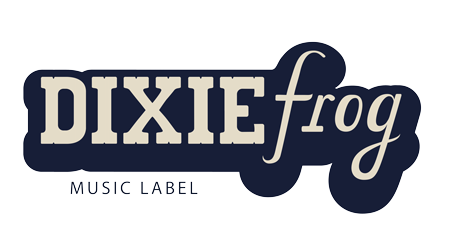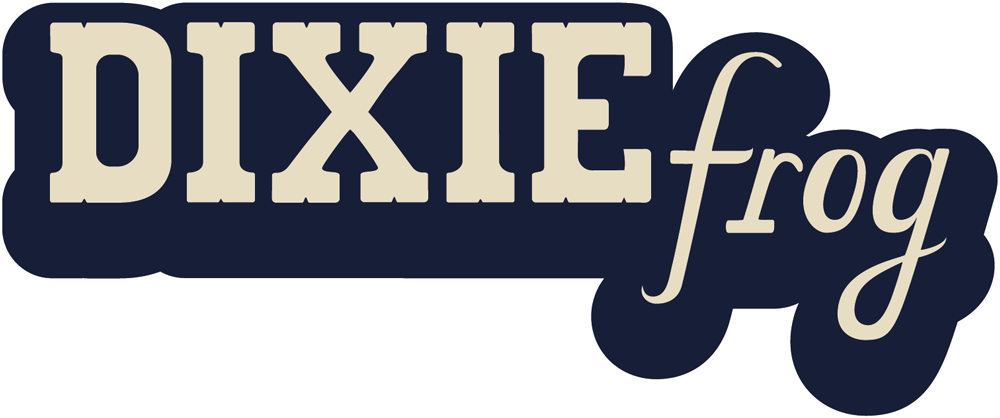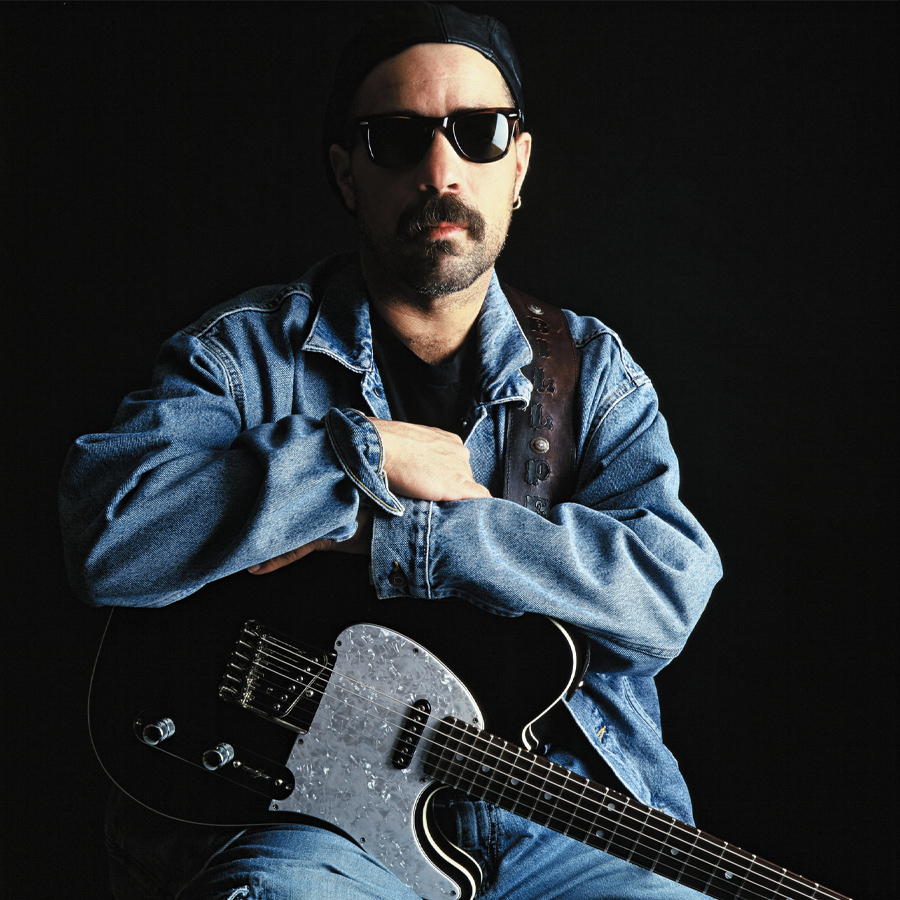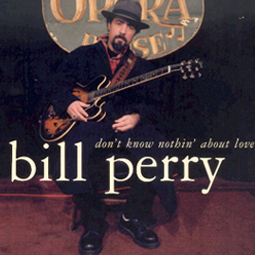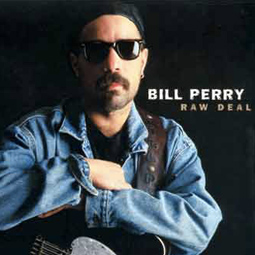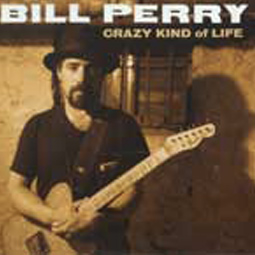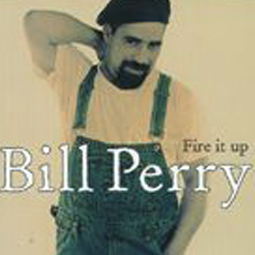Bill Perry ranks among the best of a new generation of blues performers. He’s a stunning guitar master, or, as Guitar One put it, a “six-string superman more powerful than a locomotive.” He’s also an intense, highly expressive singer and a superb songwriter. His music reflects his New York City sensibility – passionate and somewhat menacing.
Born and raised in the Hudson River town of Chester, New York, Bill was presented his first guitar at the age of five. “Right away,” he says, “I could play the theme from ‘Batman.’” Like Charlie Parker and Jimi Hendrix, Perry’s parental heritage is half Afro-American and half American Indian, and he grew up in a household surrounded by gospel and blues music. “My father used to listen to Jimmy Smith and B.B. King, and my grandmother played organ in church, so I was always around this kind of music.”
Eventually Bill gravitated to the rock sounds of the 60’s. His favorite guitarists were Jimi Hendrix, Duane Allman, and Johnny Winter. It was his discovery of their sources of inspiration that led him back to the blues.
